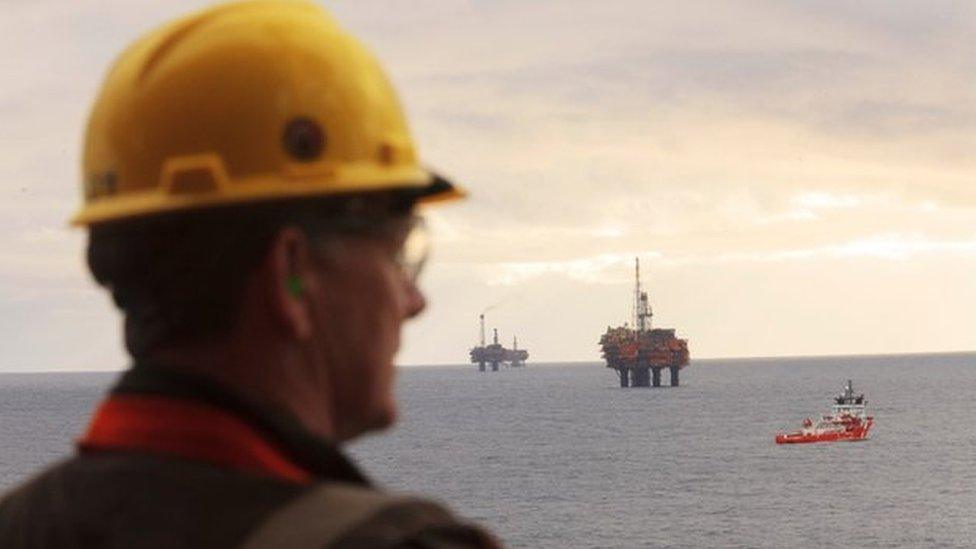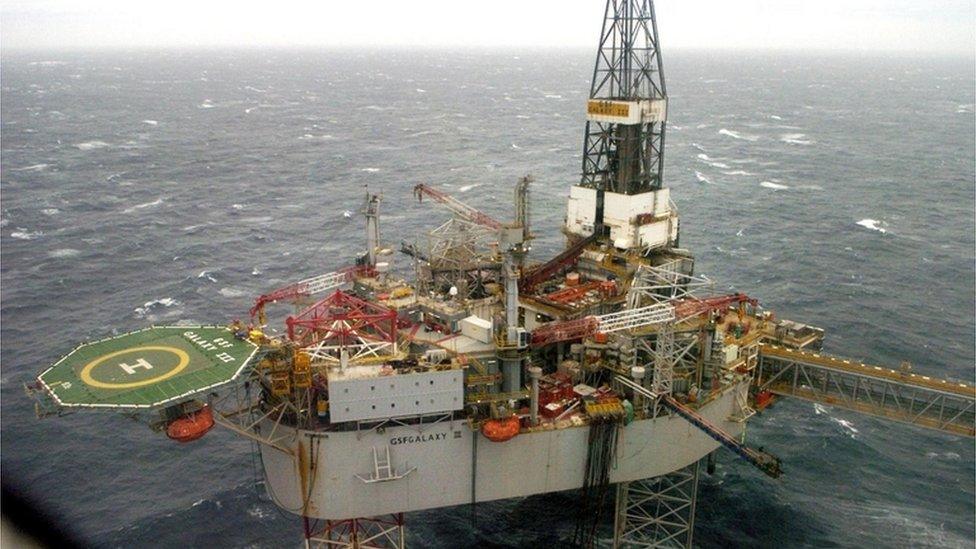Call for urgent changes in oil and gas industry
- Published

Senior figures in offshore oil and gas have called for more radical and urgent changes to avoid rapid decline.
They say there are only two years in which to secure the industry's future.
A report by PwC includes a proposal for a "super joint venture" between offshore operators.
It would share risk as well as return, and secure co-ordination of activities for smaller fields and fragmented assets, as some equipment nears the end of its working life.
It could also cut out as much as 15% of cost that results from duplication of effort.
The joint approach could also be applied to funding, with the survey of senior figures finding that a lack of capital was their biggest problem.
Lack of leadership
The report, "A Sea Change", found that fewer than three in five senior executives interviewed were positive about the industry's future, while a fifth were pessimistic.
Suggestions in the report were that infrastructure, including the pipeline network, could be handed over to a third party company to ensure co-operation, or it could be nationalised.
Interviewed anonymously, the industry leaders were critical of the lack of leadership.
They suggested in the PwC report that the industry needed a dominant leading figure. This person may have to come from a different sector, to shake up inefficient, older-thinking of the existing regime.

Analysis by Douglas Fraser, Scotland business/economy editor

You know something's really badly wrong with North Sea oil and gas, when the people who control it are calling for their own overthrow.
The leaders are looking for leadership. Though fiercely competitive, they are asking someone to arrange for their collaboration.
These are business people asking for government to take over their assets.
This follows months of bad news in which we risk becoming inured to the job losses, pay cuts, slashed investment budgets, and the sale or transfer of distressed assets.

The new regulator, the Oil and Gas Authority, based in Aberdeen, is welcomed, but the report voiced doubts about its willingness to assert its authority, to change competitive behaviour between offshore operators.
There was also a call for the UK government to align the approach by different departments, and to consider the needs of smaller operators and oilfield service companies as well as the big operators.
Alison Baker, an oil and gas specialist with PwC, said: "During our interviews we picked up a real sense of urgency to create one last cycle of success that will retain and generate jobs, stimulate growth and ensure security of energy supply.
"But this was matched by a level of frustration at the fundamental issues that need tackling to avert the risk of rapid and premature decline."
She added: "The majority of respondents also want the government to take a lesson from Norway and Saudi Arabia and be bold in setting out their blueprint for the future.
"This must incorporate onshore activity as well as defining how the North Sea basin will evolve in the short to medium term and, crucially, how the end game - and subsequent transition to a low carbon landscape - will be managed."
- Published10 June 2016

- Published3 June 2016

- Published26 May 2016
